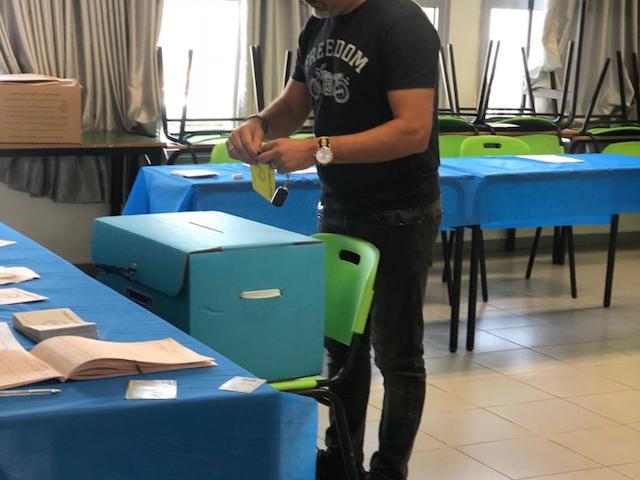In the wake of the Oct. 7 Hamas attacks and subsequent counteroffensive in Gaza, Israel's municipal elections, set to take place on Tuesday, are drawing notable attention. These elections mark a significant moment, as they are the first electoral process since the conflict, featuring candidates from both Jewish and Arab communities in Tel Aviv. The outcomes of these elections are crucial, not just for local governance—overseeing everything from waste management to urban planning—but also for their potential impact on national politics.
The political landscape within Israel's haredi (ultra-Orthodox) communities has been particularly turbulent in recent months. The haredi political arena is dominated by three main parties: the Sephardic Shas Party, the Lithuanian Degel Hatorah Party, and the Hassidic Agudat Yisrael Party. These latter two have historically partnered under the United Torah Judaism (UTJ) banner since the 1990s. Agudat Yisrael, however, is a coalition of several Hassidic groups, each with its representation in the Knesset, including Gur, Belz, Viznitz, and the Shlomei Emunim collective.
Largely unnoticed by the general public, during the last few months, Israel’s Haredi political scene gushed with vicious maneuvering over control of the largest Haredi cities, Bnei Brak, Elad, Bet Shemesh & Beitar Illit https://t.co/rrsDJRtSa4
— Religion and State (@religion_state) February 26, 2024
A pivotal moment occurred when Rabbi Dov Lando, a leading figure within the Lithuanian haredi community, reneged on a pre-arranged deal from the 2018 municipal elections in Elad. The agreement had stipulated a rotation of mayoral candidates between Degel Hatorah and Shas, aimed at maintaining haredi leadership in the city. Lando's decision to support an Agudat Yisrael candidate instead led to a breakdown in cooperation across several cities, prompting Agudat Yisrael to fragment further, with factions aligning variously with Shas or Degel Hatorah.
This fracturing of traditional alliances has not only reshaped the political dynamics within these cities but also raised questions about the future of haredi representation on a national level. The longstanding partnership between Degel Hatorah and Agudat Yisrael is showing signs of strain, risking their joint electoral viability and, by extension, the influence of haredi parties in the Knesset.
Ahead of tomorrow's municipal elections in Israel, @LahavHarkov interviewed candidates who have been doing IDF reserve duty in recent months.https://t.co/xhz3C7cUXs
— Jewish Insider (@J_Insider) February 26, 2024
In contrast, the Tel Aviv mayoral race has garnered less public intrigue. Incumbent mayor Ron Huldai is seeking re-election against Orna Barbivay, a former Yesh Atid MK and IDF general. Despite their ideological similarities, Barbivay's campaign has focused on the argument that Huldai's long tenure—25 years—is excessive, sidestepping policy debates in favor of a call for fresh leadership.
Always fun catching up with @asafzamir, who is running in the upcoming municipal elections in Tel Aviv. Asaf also knows where all the best coffee spots in TLV are! pic.twitter.com/TpUDmP38x7
— Arsen Ostrovsky 🎗️ (@Ostrov_A) February 22, 2024
This election cycle reflects broader shifts within Israeli society and politics. A potential victory for Barbivay could symbolize a transition within the Israeli Left, challenging established figures and suggesting a readiness among voters to embrace new leadership and perhaps a realignment of left-wing forces in the country. This is particularly relevant as the Labor Party, historically a pillar of the Israeli Left, grapples with its future direction and leadership.
Meanwhile, the call for national elections amidst the backdrop of conflict and political upheaval underscores the deep divisions and challenges facing Israeli society. Opposition Leader Yair Lapid advocates for immediate elections, arguing that the democratic process has proven resilient even in times of crisis. Lapid's stance is a critique of the current government's handling of the conflict and a broader call for political renewal in the face of national adversity.
Important message about tomorrow’s municipal elections in Israel… pic.twitter.com/lCeGsrF3Ki
— Dov Lipman (@DovLipman) February 26, 2024
As Israel navigates these municipal elections, the outcomes could have far-reaching implications for its political landscape, potentially reshaping alliances, leadership, and policy directions both locally and nationally.


